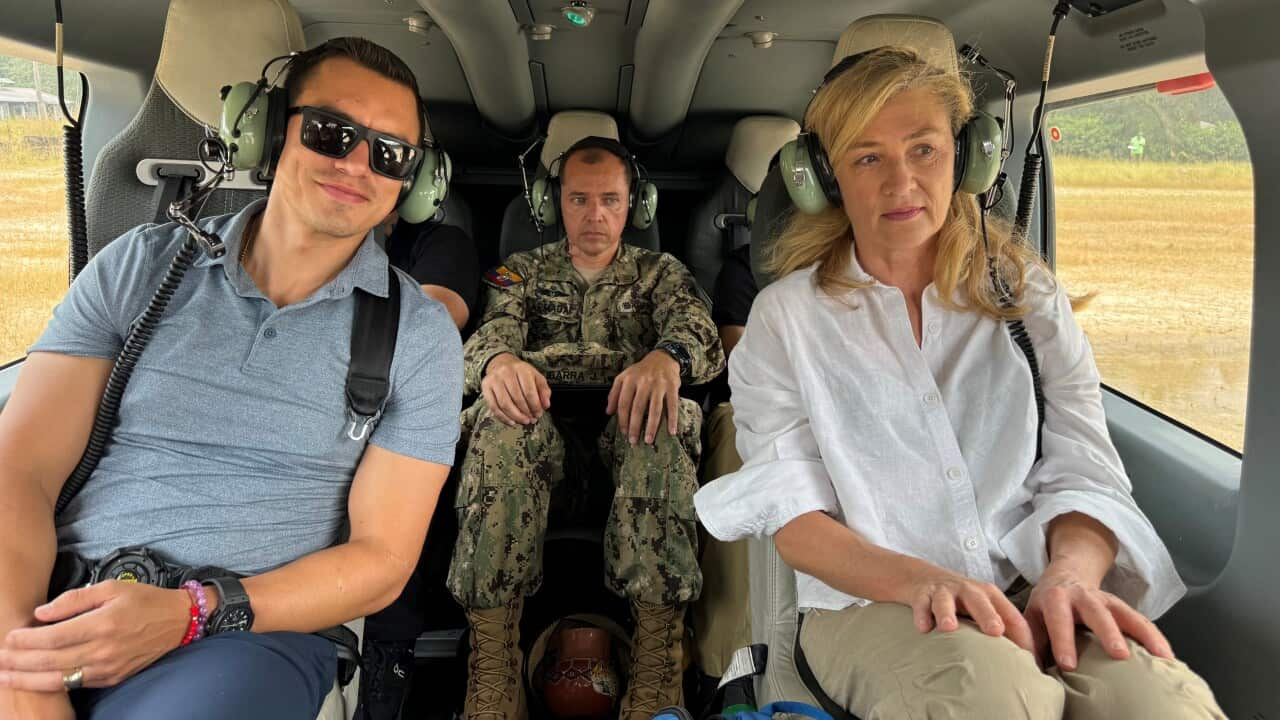Key Points
- Ecuadorian President Daniel Noboa’s order to raid Mexico’s embassy has provoked an international outcry.
- SBS World News was granted an exclusive interview with Noboa.
- Noboa said he has no regrets over the Mexico incident.
Later at the presidential palace in Quito we sat down for a rare interview.

Ecuadorian President Daniel Noboa says he made the right decision, after ordering a raid on Mexico’s embassy that resulted in violent clashes and angered the international community. Source: SBS News / Prue Lewarne
I asked Noboa: “You’ve been condemned by every Latin American country, except for El Salvador, and the United States, your staunch ally, condemned what happened at the embassy. So the obvious question is, Mr President, do you have any regrets?”
“I think we’re on the right side of history and also, they also condemn the fact that some governments use their embassies as, when with a facade of a political refugee, but it’s actually for impunity. It’s actually to save the criminals from their sentence.”
What happened during Ecuador’s embassy raid?
In Noboa’s words: “In this case, Jorge Glas had a sentence. He had a fair trial. He had a sentence and he had to be in jail and that’s what our Justice Department thought and also what the judicial branch of Ecuador thought. I have no regrets.”

Ecuadorian police special forces stormed the Mexican embassy in Quito to arrest Ecuador’s former vice president Jorge Glas on 5 April, sparking a major diplomatic incident. Source: AFP / Alberto Suarez/AFP via Getty Images
Mexico has severed diplomatic ties with Ecuador and it has asked the International Court of Justice to suspend Ecuador as a member of the United Nations until it issues: “a public apology recognising its violations to the fundamental principles and norms of international law” and agrees to reparations.
I asked Noboa: “Do you think everyone else is wrong? Do you think the Vienna Convention needs to be reworked?”

He said there was also “a plan to escape” that he was made aware of.
Ecuador’s upcoming referendum
“It was my responsibility. If Glas would have escaped using vehicles from the embassy and planes from the Mexican government then I would have been too weak for everyone. Now that I caught the guy, I’m too strong. So it’s kind of difficult to please everybody but the vast majority of the people in Ecuador are happy with my decision.”

Mexican police agents place metallic fences outside the Ecuadorian embassy facilities in Mexico City. Source: AAP / EPA
A video that Mexico released from within the embassy shows violent clashes with police officers.
“I think there is evidence that there are Mexican cartels operating in Ecuador and in Colombia, as well as in Venezuela,” the president said.

Soldiers search a neighbourhood for illegal weapons during an anti-gang operation in Guayaquil, Ecuador, in February. Source: Getty / John Moore
I asked him if this is why he is cross with Mexico.
“Whenever he’s ready.”
